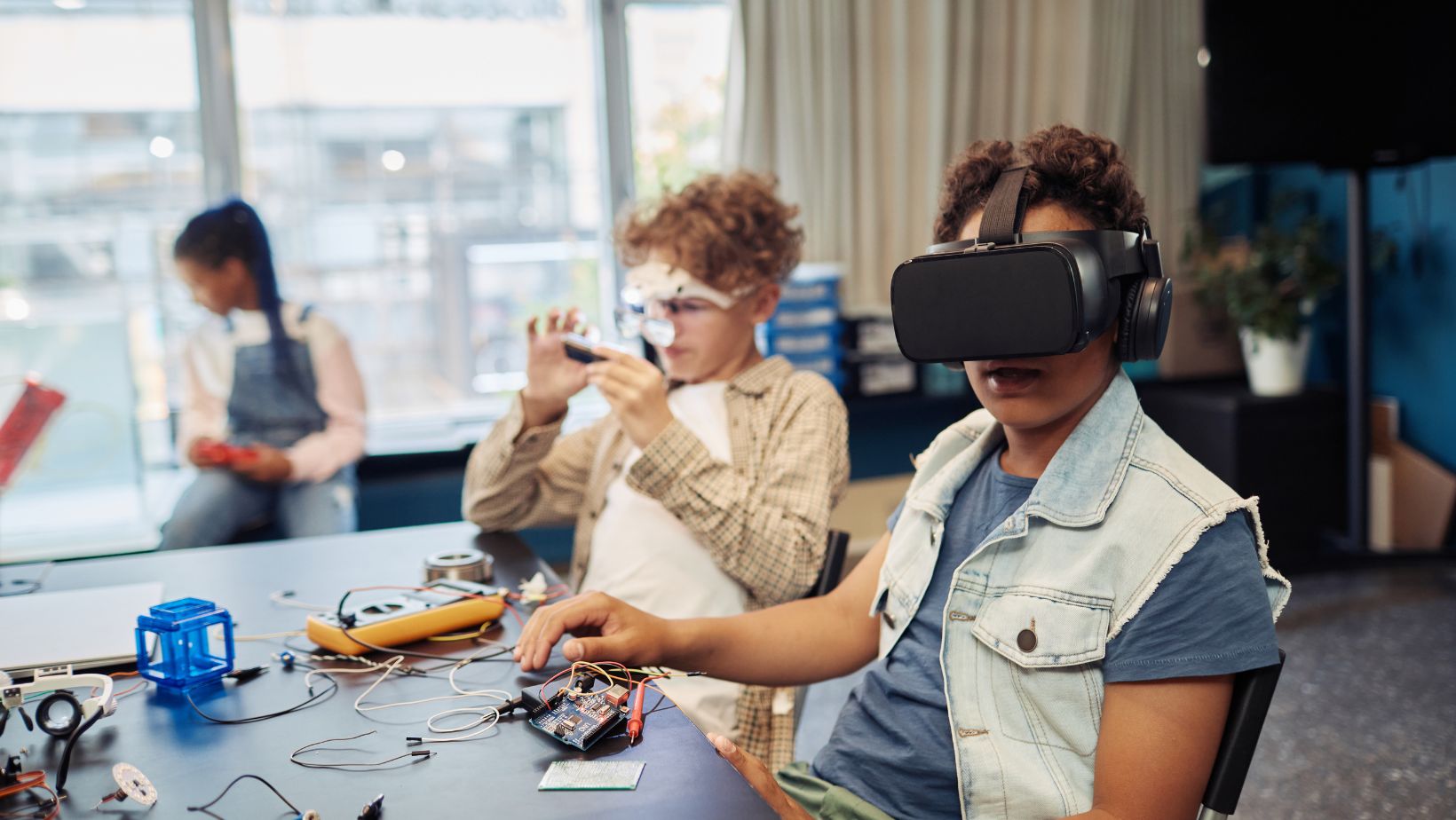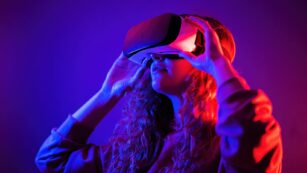
As technology rapidly evolves, so does the landscape of entertainment, promising a future that’s as thrilling as the plot twists in a blockbuster movie. From virtual reality experiences that transport viewers to other worlds to personalized content that adapts to the taste of each individual, the boundaries of what entertainment can be are expanding every day.
Future of Entertainment
The entertainment industry faces a paradigm shift, driven by technological advancements that promise more personalized and engaging experiences. As this sector evolves, two key developments stand out: Virtual Reality (VR) and Augmented Reality (AR), alongside the rapid evolution of streaming services.
Virtual Reality and Augmented Reality
 Virtual and augmented reality technologies are redefining audience engagement, offering immersive experiences that were once the realm of science fiction. VR transports users to completely fabricated settings, while AR overlays digital information onto the real world, enhancing the user’s perception of reality. Major film studios and game developers are investing heavily in these technologies, with VR and AR projected to generate substantial revenue in the upcoming years. For instance, sectors like live sports and concerts utilize AR to enhance viewer experience, overlaying stats and performance data during live broadcasts.
Virtual and augmented reality technologies are redefining audience engagement, offering immersive experiences that were once the realm of science fiction. VR transports users to completely fabricated settings, while AR overlays digital information onto the real world, enhancing the user’s perception of reality. Major film studios and game developers are investing heavily in these technologies, with VR and AR projected to generate substantial revenue in the upcoming years. For instance, sectors like live sports and concerts utilize AR to enhance viewer experience, overlaying stats and performance data during live broadcasts.
Streaming Services Evolution
Streaming services have revolutionized how content is consumed, shifting the power from traditional cable providers to digital platforms. The next stage in this evolution focuses on personalization and content curation, driven by advanced algorithms that analyze viewing habits to tailor suggestions. This not only enhances user experience but also increases viewer retention and subscription rates. Additionally, new technologies enable higher streaming qualities, such as 4K and 8K video resolution, meeting the demands of increasingly sophisticated audiences. Looking forward, streaming services are likely to integrate more interactive elements, such as choose-your-own-adventure shows and live social interactions, fostering a more dynamic relationship between content creators and consumers.
Revolution in Content Consumption
The landscape of entertainment is undergoing a significant transformation with shifts toward on-demand viewing and enhanced personalization through AI, delivering unique and tailored experiences to consumers.
Shift to On-Demand Viewing
 Viewers increasingly prefer on-demand content over traditional broadcast schedules, influencing the way entertainment is consumed. Services like Netflix, Hulu, and Amazon Prime Video have led this shift by offering extensive libraries of shows and movies that are accessible anytime, anywhere. This model provides viewers with the freedom to watch content at their convenience, without adhering to a fixed program schedule. Data suggests that over 60% of U.S. households now subscribe to at least one streaming service, underscoring the popularity of on-demand content.
Viewers increasingly prefer on-demand content over traditional broadcast schedules, influencing the way entertainment is consumed. Services like Netflix, Hulu, and Amazon Prime Video have led this shift by offering extensive libraries of shows and movies that are accessible anytime, anywhere. This model provides viewers with the freedom to watch content at their convenience, without adhering to a fixed program schedule. Data suggests that over 60% of U.S. households now subscribe to at least one streaming service, underscoring the popularity of on-demand content.
The rise of mobile devices has further fueled the demand for on-demand entertainment. Smartphones and tablets allow consumers to access media content on the go, not limiting them to home television sets. This convenience has been critical in increasing the consumption of digital content globally, making entertainment accessible in just a few taps.
Personalization Through AI
 Artificial Intelligence (AI) plays a pivotal role in reshaping content consumption by facilitating unprecedented levels of personalization. Streaming platforms utilize AI to analyze viewer preferences and viewing habits, enabling them to recommend content that is likely to appeal to each individual user. For example, Netflix’s recommendation system analyzes billions of records to suggest movies and shows based on past behavior, effectively keeping viewers engaged and subscribed.
Artificial Intelligence (AI) plays a pivotal role in reshaping content consumption by facilitating unprecedented levels of personalization. Streaming platforms utilize AI to analyze viewer preferences and viewing habits, enabling them to recommend content that is likely to appeal to each individual user. For example, Netflix’s recommendation system analyzes billions of records to suggest movies and shows based on past behavior, effectively keeping viewers engaged and subscribed.
Moreover, AI helps in optimizing the viewing experience, adjusting video quality to bandwidth availability, and improving content accessibility through features like automated subtitling and audio descriptions, making entertainment enjoyable for all users, including those with sensory impairments
Impact of Technology on Traditional Media
As entertainment continues to evolve, the integration of VR, AR, and advanced streaming algorithms is setting the stage for a revolution in how we consume media. The future looks promising with technologies that not only enhance the viewer’s experience but also offer creators new tools to tell stories in compelling and innovative ways. The ongoing investment in these technologies by industry giants underscores their potential to redefine the entertainment landscape. With each advancement, consumers gain more control over what, when, and how they engage with content, ensuring that entertainment remains a dynamic and ever-evolving form of human expression. The journey ahead is exciting as traditional media transforms to meet the demands of a technologically enriched future.
